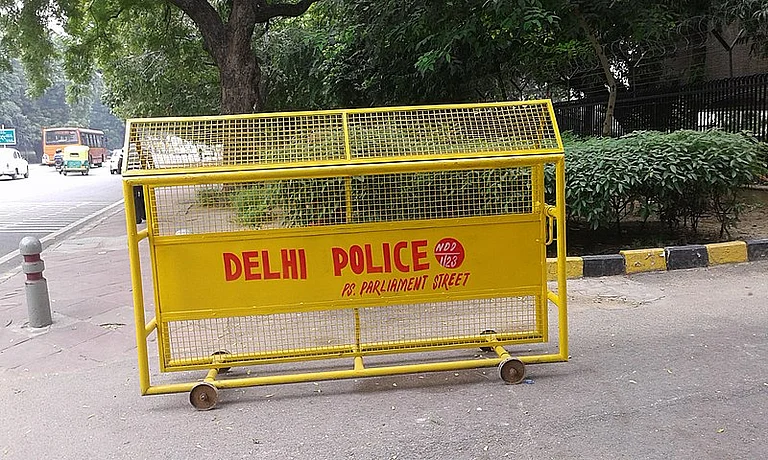A day after the blow, though, Iraqi TV broadcast images of Iraqi soldiers, at an unknown location in the south—where coalition soldiers have certainly left their mark, having poured in from the Kuwaiti border—training and preparing themselves for war. It was as if to say: "It’s not over yet. You’re not rid of us yet."
One of the biggest surprises of this war has been the Iraqi military’s resilience against a coalition many times larger and better equipped. The one question being asked of coalition commanders: did you expect such resistance?
President Bush and Tony Blair, at a joint briefing last Thursday, brushed aside any suggestion of surprise. Bush said he’d repeatedly warned the war may last longer than anticipated. "This isn’t a matter of a timetable," he said somberly. "It’s a matter of victory." The war would take "however long it takes to win".
But that has decidedly become tougher. Events have, for one, compelled the US to order deployment of 120,000 extra soldiers to beef up the 200,000-plus strong force already in and around Iraq. Iraqis say it’s proof the campaign isn’t going the way the coalition had anticipated. Many agree. "It was a failure in assessment fed by failure of intelligence. The alliance miscalculated, and badly," said Col Christopher Langton, of the International Institute for Strategic Affairs in London.
"First, it’s not going to be easy to take Baghdad. If they manage to enter, they’ll have to take it street by street, building by building," says Langton. Iraq’s resistance is just one of the problems the coalition has encountered. Slowed by a blinding sandstorm, an inordinately long and insecure supply line, the march to Baghdad became a veritable crawl, in stark contrast to the spectacular ease with which it had earlier swept through south Iraq. Eight days into the conflict, the Americans were still 50 miles from Baghdad. And they hadn’t yet encountered the elite Republican Guard, which has been under sustained bombing in and outside Baghdad. This was also aimed at destroying any booby traps, obstacles they could have erected in and around the capital.
But problems have surfaced in the rear. In Basra, which the Iraqis were supposed to have surrendered willingly, coalition forces met stiff resistance. The unpredictability of Fedayeen Saddam, the brutal militia founded by the Iraqi president’s son Uday, has also caused immense trouble: they have taken to lulling allied forces into believing they are to surrender and then ambushing. It was in such an incident on March 23 that some US support-staff marines were taken hostage.
The Fedayeen are infamous for their intimidatory tactics. They’re blamed for suppressing the anti-regime sentiment the US desperately needs to demonstrate to a sceptical world. It’s still difficult to judge the popular mood through the wide swathe of the country. Some say it’s sheer stubbornness that’s enabled Iraqis to mount stoic resistance. Others say it’s a last-ditch effort on the part of Saddam’s loyalists to put up the biggest fight they can—and not only militarily. A large part of this war, after all, has been psychological and public relations warfare. Indeed, Iraqi state TV had the last laugh when coalition forces claimed they had knocked it off the air, cutting Saddam off and destroying his "command and control". Just a few hours later, the station was back to broadcasting locally again.
Key to the US strategy now is to convince Iraqis their leadership has become weak enough for them to break free from a regime that’s yanked the reins of power for three decades. Early in the war, the US said Saddam was either dead or injured and was not in "minute-to-minute" control of government. There were also rumours that deputy PM Tariq Aziz had been either killed or had defected. This week, Saddam delivered what could best be described as a "vintage" speech, assuring everyone he was alive and in control.
For greater certainty (and with the desired effect), various Iraqi ministers have also appeared on TV, levelling accusations against coalition forces. Health minister Umed Mubarak claimed some 350 have perished in the bombing and some 4,000 injured. A day earlier, Iraq and the US were hurling accusations at each other over the bombing of a Baghdad market.
This was no accident, said the Iraqis. This was proof, they said, that the US wasn’t abiding by its promise to stay away from civilian targets. The Americans say the devastation may have resulted from errant Iraqi surface-to-air missiles, not coalition bombing.
The truth may never be known. It depends on your point of view. For critics, the war is going badly: coalition troops have yet to enter Baghdad eight days after the conflict began. They have yet to bring Basra, Iraq’s second largest city, under control. And it took days of bloody fighting to secure Umm Qasr.
Ironically, opinion polls show Americans’ support for the war has not diminished but the percentage of those who think it is going well has dropped by half. These factors combined could convince Bush to step on it. So, expect more bombing, more deaths, more destruction.
Nahlah Ayed in Amman with Sanjay Suri in London

























